June 16, 2025 | 17:31 GMT +7
June 16, 2025 | 17:31 GMT +7
Hotline: 0913.378.918
June 16, 2025 | 17:31 GMT +7
Hotline: 0913.378.918
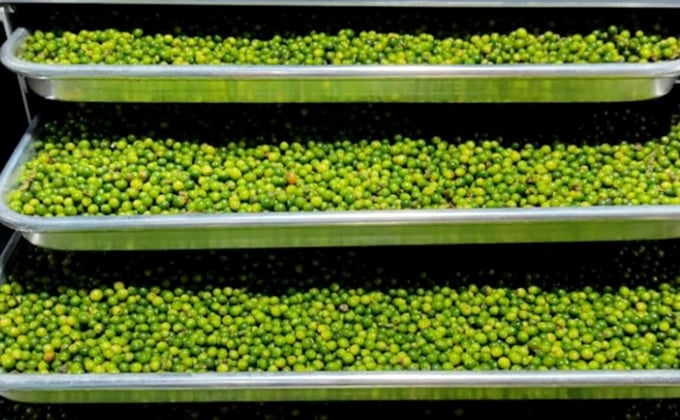
Vietnam's pepper output is decreasing. Photo: Thanh Son.
Vietnam's pepper exports decreased significantly in volume in the first months of this year. According to the Vietnam Pepper and Spice Association (VPSA), in the first four months of the year, Vietnam exported 83,000 tons of pepper, down 19.4% compared to the same period last year.
Mrs. Hoang Thi Lien, President of VPSA, said that export volume decreased sharply, but pepper prices in Vietnam increased. If in April 2023, the pepper price was VND 67,000 per kg, then in April this year, it was nearly VND 97,000 per kg.
Information from pepper industry traders said that in the first days of May, pepper prices rose to over VND 100,000 per kg. Although export volume decreased sharply, thanks to high domestic and international prices, pepper export turnover in 4 months reached USD 352 million, an increase of 10.3% over the same period.
Mrs. Lien said the increase in pepper prices is good for farmers to compensate for the years when prices were too low (2019 and 2020). With the price movements of pepper from the beginning of the year until now, it is clear that pepper is entering a new price increase cycle. The main reason is the limited global pepper supply.
Pepper output decreased in Vietnam and other large producing countries in Asia, such as Indonesia and India, and smaller producing countries, such as Malaysia and Sri Lanka. The largest pepper-producing country in South America, Brazil, is also experiencing reduced output due to the impact of El Nino. Reduced global output has begun to support an increase in pepper prices from September and October 2023 and has increased sharply since Lunar New Year 2024.
With global pepper production, Mrs. Lien commented that in the next 3-5 years, global pepper production will not be able to meet consumer demand, which is still on the rise.
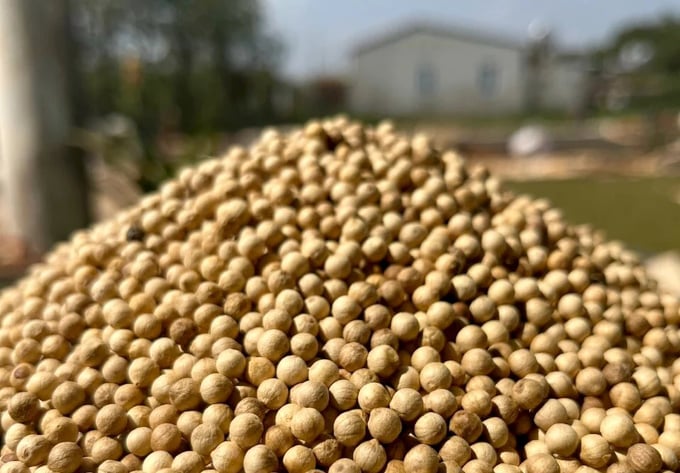
White pepper products of Binh Phuoc. Photo: Thanh Son.
Vietnam's current problem is stabilizing pepper output at 170,000 to 190,000 tons to maintain the position of Vietnamese pepper in the world market.
Vietnam's pepper output is decreasing because the growing area continuously decreases due to unfavorable weather and extreme competition from other crops such as durian, coffee, etc. Over the past decades, prices have increased. Coffee in Vietnam is always lower than the price of pepper.
However, this year, although pepper prices have increased, coffee prices have increased much more strongly and reached more than VND 140,000 per kg, while durian is still bringing in many times more profit than pepper.
Mrs. Lien said that the core issue in maintaining pepper area and output is to ensure reasonable prices for farmers so they continue to stick with this crop. Last year, when VPSA organized a survey of pepper growing areas, many farmers said that if pepper prices were only VND 50,000 to VND 60,000 per kg, they would not want to grow pepper anymore.
In addition to keeping prices reasonable for farmers, increasing the production of high-quality products and value-added products is also a critical solution many businesses apply to increase pepper value and income.
In Binh Phuoc, the largest pepper-growing province in the Southeast region, many businesses and cooperatives are investing in pepper processing and high-quality pepper production.
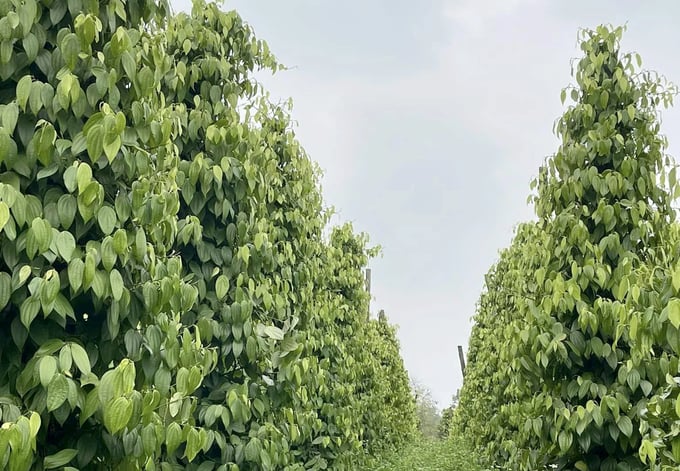
A pepper garden in Loc Ninh district, Binh Phuoc. Photo: Thanh Son.
Mr. Truong Tan Nhat Linh, Deputy Director of Binh Phuoc Department of Industry and Trade, said that Binh Phuoc currently has 14,000 ha of pepper, with a total output of 27,000 tons. Previously, after harvesting pepper, Binh Phuoc farmers mainly cleaned, dried, and sold it to traders.
However, in recent years, with the participation of Nespice Vietnam and several local businesses, many farmers in Binh Phuoc have participated in the processing chain of value-added products from pepper. Until now, Binh Phuoc has products processed from pepper that are accepted by the market, such as freeze-dried four-color pepper powder, freeze-dried green pepper powder, freeze-dried green pepper, red pepper, black pepper, and white pepper.
These products help significantly increase the value of Binh Phuoc pepper and help farmers feel secure in sticking with pepper thanks to being purchased by businesses at reasonable prices.
Also, according to Mr. Linh, Binh Phuoc province has successfully built and registered the brand "Loc Ninh Pepper" and is gradually protecting and developing this brand sustainably.
The People's Committee of Binh Phuoc province has assigned the Department of Agriculture and Rural Development to preside over the development of the value chain of the Binh Phuoc pepper industry, develop a sustainable pepper supply chain linked with Nespice Vietnam and a production program according to rainforest alliance.
From now on, Binh Phuoc pepper will reach the European and other demanding markets. This program has been implemented in 6 districts with large pepper areas and output in Binh Phuoc province.
Translated by Huong Giang

(VAN) Noting risks, report examines impacts of avian influenza, changing trade patterns since 2022, fish fraud, and shipping industry’s net-zero goals.

(VAN) Mr. Tran Quang Bao, General Director of the Forestry and Forest Protection Department, met and worked with the International Wood Products Association to promote cooperation in the field of timber trade.

(VAN) China's outbound shipments of rare earths in May jumped 23% on the month to their highest in a year, though Beijing's export curbs on some of the critical minerals halted some overseas sales.

(VAN) To sustain capital flow, administrative reform alone is not enough; what farmers truly need is an ecosystem where both government and businesses grow together in support.
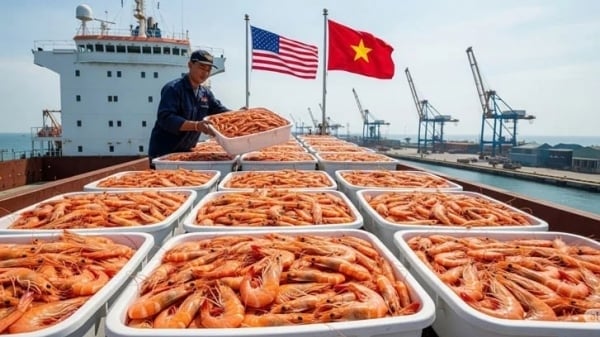
(VAN) Vietnam and the United States are proactively working together, each in their own way, to ensure that every container of agricultural goods carries not just products, but also long-term trust and value.

(VAN) Stores have started selling rice from the government’s stockpile to feed demand for the staple.
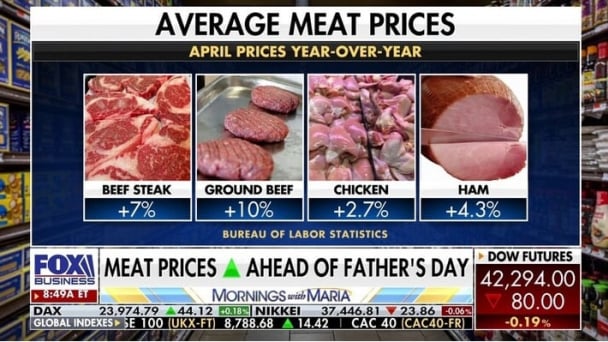
(VAN) Omaha Steaks CEO says rebuilding cattle herds will take about a year to ease price pressures.